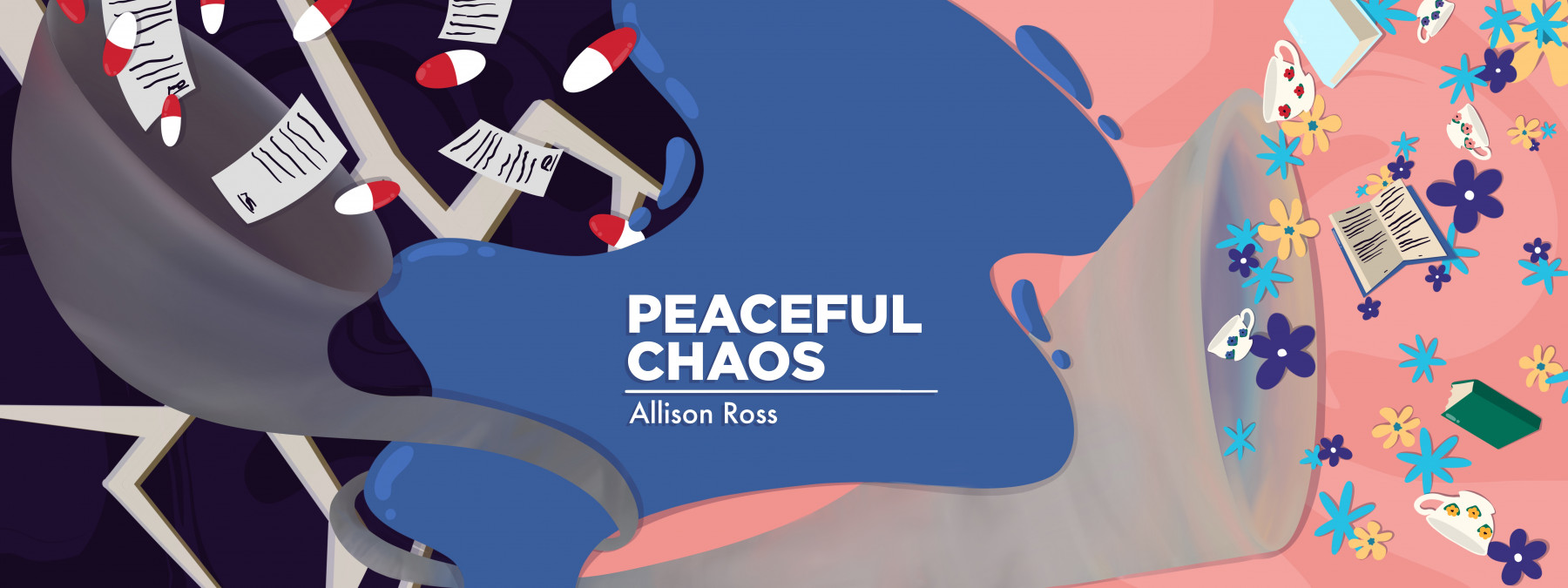How to Face Down the Precarious Cliff of Mental Health
Tips on getting past depression, gleaned from the dark days of experience
Written by |

I can feel the ominous darkness gathering. I dread it.
Usually, I hold authority over my reactions to emotion. Though sadness and hopelessness aren’t controllable, I’ve developed the tools to mitigate their heaviness. They’re all too common with a vasculitis diagnosis.
The ominous dread is my mental state, balanced for so long but now threatening to tip. And once it does, it’s difficult to regain equilibrium.
It’s like a cloud looming on the horizon. There is inevitable rain coming, but the cloud hasn’t yet burst. I can dance around the word, but ultimately I have to acknowledge what it really is: depression. I know it all too well.
Even though I’ve been in remission now for nine years, my illness is pervasive and ever-present. It affects every part of my life even in the absence of inflammatory symptoms. To think I can escape its reach is futile. The best I can do is properly nurture my psychological reaction to its complications.
I’ve spent over half my life dealing with this, and fortunately the majority of days are good ones. Most of the time, I’m relaxing on the beach with a drink in my hand. But I can see the tide coming in, and I know I’ll get swept away again occasionally.
So what can I do to lessen the wave?
The bottom line: take care of myself. This can manifest in several ways.
- Exercise. There’s nothing quite like natural endorphins to stave off the blues. Plus, if I bring my dog with me, I get the added bonus of animal companionship. It’s impossible to observe his happy trot through the woods and cute, smiling face without lifting my spirits.
- Friends. I’m an extreme extrovert, and I know there’s almost no time when I’d prefer to be alone rather than with my people. As long as it’s quality time with someone who matters to me, socialization is virtually guaranteed to turn a bad day around.
- Self-care. Soothing rituals like bath time or simple pleasures of touch or scent give my brain a boost of serotonin. This can include aromatic candles, a delicious dessert, or a sip of my favorite drink.
- Journaling. I’m a writer, after all! Putting words on paper allows me to sort out what I’m truly thinking and feeling and observe it all from a more objective viewpoint. Often, once I’ve written a page or two, the burden has already lifted a little.
- Sleep. Sometimes all it takes is a bit of quality rest to reset my brain to a more optimistic state. Even if I don’t go fully into a deep sleep, the chance for my body to relax is helpful.
You probably have rituals that help you, too. These are simply my favorites. If I’m approaching the cliff, these things help me maintain balance. It doesn’t mean I won’t go over the edge, but at least I can regain my footing faster.
Sometimes, all it takes is a roadblock or two to trigger the decline. Everyone has bad days, right? But for me, things like frustration or lack of motivation are dangerously akin to the same feelings of depression. I’ve noticed this correlation and am learning how to maneuver it.
There are also certain times of year that are more precarious than others. For example, I know the dark days of winter set me off more easily than summer, when days are bright and life is calm. Sunlight makes such a huge difference to any mentality, but particularly one that tends toward depression.
As a teen, I was much closer to the onset of the disease and hadn’t yet developed the tools to handle the ebb and flow of my emotions. Nowadays, I’m increasingly secure in my ability to navigate these waters. I know it’s OK to feel what I feel, because there’s an underlying reason for it.
And now I know that when when the thunderclouds roll in, there will always be sun on the other side of the storm.
Note: ANCA Vasculitis News is strictly a news and information website about the disease. It does not provide medical advice, diagnosis, or treatment. This content is not intended to be a substitute for professional medical advice, diagnosis, or treatment. Always seek the advice of your physician or other qualified health provider with any questions you may have regarding a medical condition. Never disregard professional medical advice or delay in seeking it because of something you have read on this website. The opinions expressed in this column are not those of ANCA Vasculitis News or its parent company, Bionews, and are intended to spark discussion about issues pertaining to ANCA vasculitis.







Leave a comment
Fill in the required fields to post. Your email address will not be published.